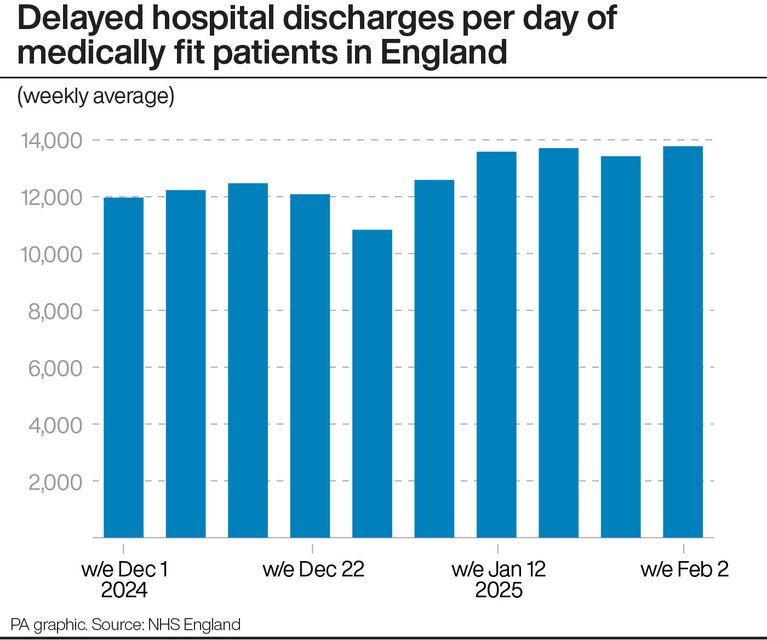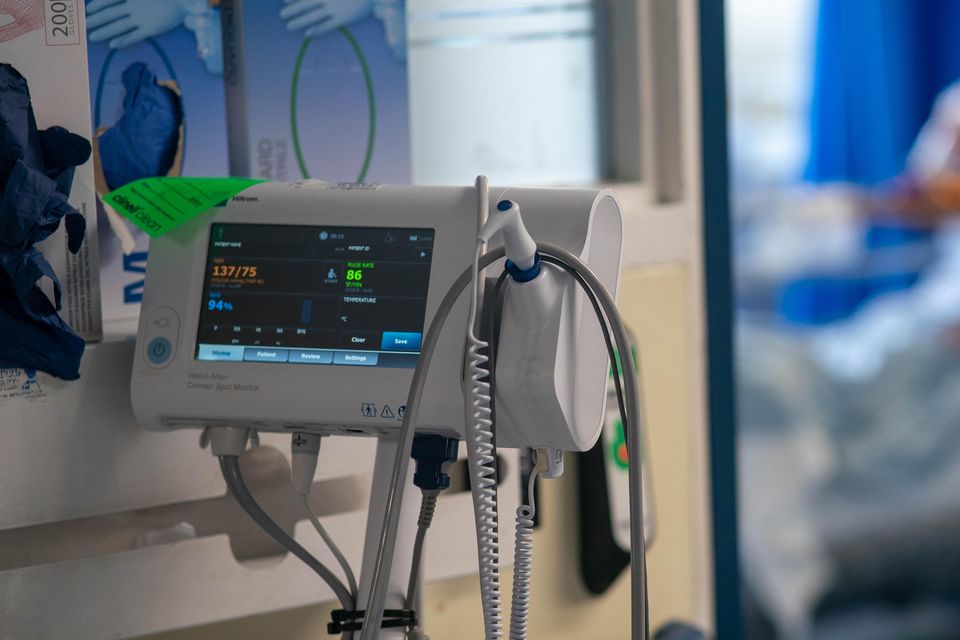Health bosses have been urged to tackle bed blocking and long emergency department waits in hospitals by a coroner, who warned that there is a “risk of future deaths unless something is done”.
It comes after the death of a 91-year-old woman who refused to go to A&E after a previous experience which saw her forced to wait for a long time in a chair, even though she had a broken back.
Dorothy Reid was “in discomfort for hours” in a busy emergency department at Queen Elizabeth the Queen Mother (QEQM) hospital in Margate, Kent, in March last year.
When she needed emergency care again some days later she refused because she had “such a poor experience” previously.
Ms Reid died from a blood clot, but North East Kent Coroner Catherine Wood ruled that she may not have died when she did if she had attended A&E when she was advised.
Mrs Wood highlighted how “unnecessary pressure” builds in emergency departments when hospital beds are “blocked by patients who are medically fit for discharge”.
She said this is a “national, not local problem”.
The news comes after NHS bosses warned that hospitals in England are “close to full” as a significant number of beds are occupied by people who are medically fit to be discharged.
NHS England said last week that around 96% of hospital beds were full.
And one in seven of these beds were taken by patients who were medically fit to be discharged.
A “prevention of future deaths” report by Mrs Wood, highlights how Ms Reid was advised to go to hospital after suffering a fall at home.
(PA Graphics)
Spinal fractures were identified on an x-ray and she was referred to the emergency department where she was “kept overnight” before she was given an MRI.
The report highlights how she “had to wait on a chair as there were no beds”.
During various interactions with health services in the aftermath of her experience, staff noted that she was suffering from breathlessness.
Ten days after the first trip to A&E, her daughter contacted the 111 service and an ambulance was called after she was complaining of shortness of breath accompanied by swollen feet and lower legs.
“Although the ambulance crew advised that she should attend hospital, she wanted to avoid a trip to hospital due to her previously having to wait in discomfort for hours,” the report states.
A few days later Ms Reid was taken to A&E where she died.
Her cause of death was recorded as a blood clot which developed during her reduced mobility because of the fall. The fall also caused spinal fractures due, in part, to underlying osteoporosis.
But Mrs Wood said that if Ms Reid had gone to A&E a second time she may not have died when she did.
Medical equipment on a NHS hospital ward in London (Jeff Moore/PA)
“During the course of the evidence it became clear that on both attendances to the emergency department at QEQM she had to wait on a chair as there were no beds,” Mrs Wood wrote.
“The first attendance led to such a poor experience that she chose not to go back to hospital when an ambulance was called on 31 March 2024.
“Had she gone to hospital on 31 March 2024 when advised to do so it is likely that her pulmonary embolus would have been diagnosed in the emergency department and treated and she would not have died when she did.”
She highlighted how, on both visits, the emergency department was busy, but she was told that “this was not unusual and the reasons being that beds in the hospital are blocked by patients who are medically fit for discharge”.
Mrs Wood added: “The evidence heard was that on average around 25% of the hospital beds were filled with patients who did not need to be there which in turn leads to patients who need to be admitted not having a bed to be admitted into.
“This in turn leads to patients waiting in the emergency department for a bed. This places unnecessary pressure on the emergency departments and leads to delays for those seeking emergency treatment.
“The evidence heard suggested that this was a national not local problem.”
She highlighted evidence from the Royal College of Emergency Medicine which links deaths to long emergency department waits, adding: “This, in conjunction with the reluctance of patients to attend the emergency department due to long waiting times clearly gives rise to a risk of future deaths unless something is done.”
And “action should be taken to prevent future deaths and I believe you have the power to take such action”, Mrs Wood said in the report, which has been sent to Health Secretary Wes Streeting and NHS England boss Amanda Pritchard.
The Department of Health and Social Care and East Kent Hospitals University NHS Foundation Trust, which runs the QEQM, have been approached for comment.

